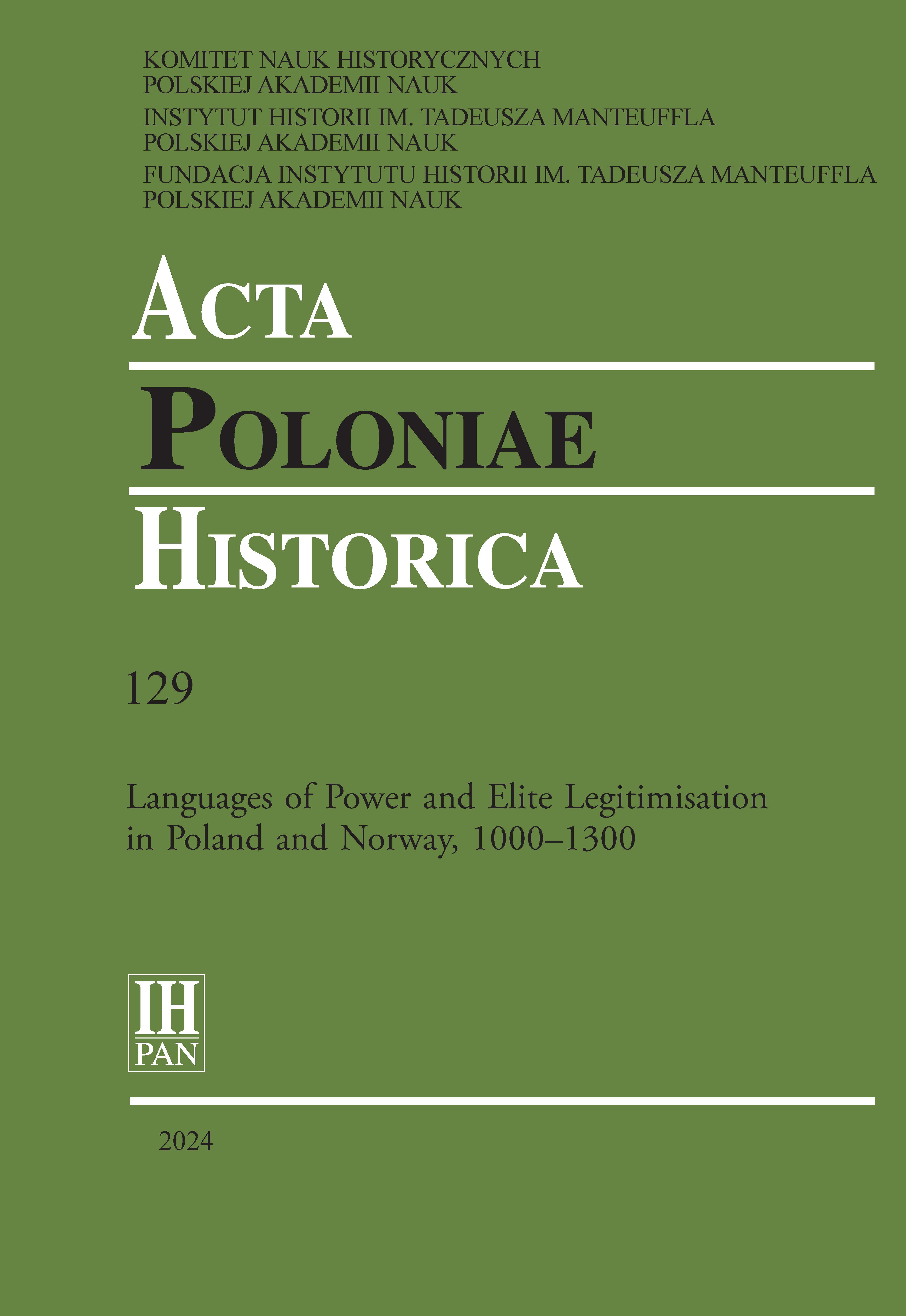Concluding Remarks: Languages of Power and Elite Legitimisation in Poland and Norway, 1000–1300
DOI:
https://doi.org/10.12775/APH.2024.129.06Keywords
power, elite, power legitimisation, comparative history, centre and peripheryAbstract
The articles in the volume demonstrate that comparative history can break out of the straight-jacket of supposed geographical constraints, and show how more detailed comparative studies of various aspects of legitimisation can reveal the nuances behind seemingly uniform patterns. The concluding remarks further elaborate on these points and raise questions concerning the terminology of centre and periphery.
References
Bagge Sverre, Society and Politics in Snorri Sturluson’s Heimskringla (Berkeley–Los Angeles, 1991).
Berend Nora, ‘The mirage of East-Central Europe: historical regions in a comparative perspective’, in Gerhard Jaritz and Katalin Szende (eds), Medieval East Central Europe in a Comparative Perspective (London, 2016), 9–23.
Berend Nora (ed.), Christianization and the Rise of Christian Monarchy (Cambridge, 2007).
De Cevins Marie-Madeleine (ed.), Démystifier l’Europe centrale: Bohême, Hongrie et Pologne du VIIe au XVIe siècle (Paris, 2021).
Gieysztor Aleksander, L’Europe nouvelle autour de l’an mil. La papauté, l’empire et les ‘nouveaux venus’ (Rome, 1997).
Downloads
Published
How to Cite
Issue
Section
License
Title, logo and layout of journal are reserved trademarks of APH.Stats
Number of views and downloads: 325
Number of citations: 0



